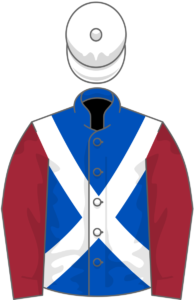Which Grand National winner allegedly jumped only one circuit?
On March 29, 1947, on heavy going, with thick fog reducing visibility to a hundred yards, a mammoth field of 57 runners assembled for the Grand National. The race was won by 100/1 outsider Caughoo, owned by Dublin jeweller John McDowell – who reportedly bought him ‘for his mother’ for £50 – trained by his brother, Herbert, and ridden by Edward ‘Eddie’ Dempsey.
The race was covered by Gaumont British News and the newsreel footage clearly shows Caughoo tackling long-time leader Lough Conn soon after the Anchor Bridge Crossing and, despite a mistake at the final fence, drawing away in the closing stages to win, very easily, by 20 lengths. Remarkably, Daniel McCann, jockey of Lough Conn, accused Dempsey of loitering in the fog near the twelfth fence, thereby missing out an entire circuit of the Grand National Course, and rejoining the race when the field passed that point for a second time.
Dempsey denied the accusations, McCann took legal action, and lost, but rumours of wrongdoing rumbled on for years afterwards. Indeed, Dempsey and Caughoo were not finally absolved until 1999, when the ‘Irish Mirror’ revealed photographs on the horse jumping Becher’s Brook twice during the 1947 Grand National. Dempsey did, at one point, confess to having ‘hidden behind a haystack’ – of which there were none at Aintree – on Caughoo, but may have concocted a fanciful version of events, by way of raising funds.
 In short, since the first official running of the Grand National, in 1839, just two winners have been trained in Scotland. The first of them was Rubstic, owned by former Rugby Union international John Douglas, trained by John Leadbetter, near Denholm in the Scottish Borders, and ridden by Maurice Barnes. Sent off at 25/1, the 10-year-old was involved in a ding-dong battle with his nearest pursuers, Zongalero and Rough And Tumble, before drawing away close home to win by 1½ lengths.
In short, since the first official running of the Grand National, in 1839, just two winners have been trained in Scotland. The first of them was Rubstic, owned by former Rugby Union international John Douglas, trained by John Leadbetter, near Denholm in the Scottish Borders, and ridden by Maurice Barnes. Sent off at 25/1, the 10-year-old was involved in a ding-dong battle with his nearest pursuers, Zongalero and Rough And Tumble, before drawing away close home to win by 1½ lengths.